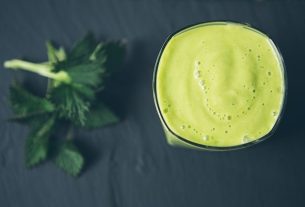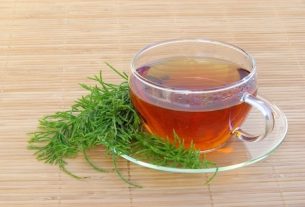Citronella is a medicinal plant rich in essential oils, such as linalool, citronellol, citronellal, geraniol and cis-calamenene, with insect repellent, flavoring, antibacterial and calming properties, and is widely used in the manufacture of cosmetics.
The scientific name of citronella is Cymbopogon nardus or Cymbopogon winterianuswhich is different from lemongrass, whose scientific name is Cymbopogon citratus, which is similar to citronella, but has different properties. These plants can be easily differentiated by their smell, as lemongrass has a sweet smell reminiscent of lemon, while citronella has a very strong smell, reminiscent of disinfectant. See the benefits of lemongrass.
Citronella can be grown in the garden or at home, in a potted plant, to enjoy its effects naturally, but, in addition, you can also buy its essential oil already extracted to obtain its effects in a more practical and powerful way.

What is it for
Citronella has many benefits and is normally recommended for:
- Repel insectsbeing a good natural way to scare away mosquitoes, such as Temples of the Egyptiansflies and ants;
- Fight fungi and bacteriahelping to keep the skin clean and healthy;
- Help with wound healingespecially caused by diabetes, due to the anti-inflammatory and antifungal effect of its essential oil;
- Keep the house scented and disinfectedwhen used for cleaning;
- Facilitate relaxationthrough aromatherapy, which also helps maintain concentration and improve mood.
Citronella is mainly used as aromatherapy or as a cosmetic product, as when its essential oils are exhaled they help promote relaxation.
Furthermore, citronella can also have benefits for animals, such as dogs or cats, used in the form of collars, helping to keep insects, fleas and ticks away, in addition to calming them.
How to use
Citronella can be used in the form of an essential oil for aromatherapy, preparation of repellents or disinfectant sprays, aromatic candles or even for massage.
1. Citronella essential oil
Citronella essential oil can be used in a variety of ways, including:
- Aromatherapy: Place 2 to 3 drops of citronella essential oil in a little water, inside an electric air freshener or in a room diffuser. The amount of water used varies according to the capacity of the electric air freshener or diffuser. The cloud of smoke or vapor formed allows the aroma to be released throughout the room. See other ways to do aromatherapy;
- Skin massage: use 5 to 10 drops of citronella essential oil mixed with 50 mL of a vegetable oil, such as coconut oil or sweet almond oil, for example. Then, apply to the skin, massaging gently with your fingertips, for about 10 minutes;
- Lotion for skin wounds: mix 3 to 6 drops of citronella essential oil for every 30 mL of a carrier oil, such as coconut oil, jojoba oil or sweet almond oil, for example. Then apply to the wound, as long as it is not open or bleeding.
Citronella essential oil should not be consumed orally or applied pure to the skin.
Before using citronella essential oil, an allergy test must be carried out, preparing a mixture containing 1 drop of citronella essential oil in 1 teaspoon of carrier oil, and applying it to the back of the hand or the crease. of the elbow. Wait 24 hours and, if during this period the skin becomes red or irritated, it is not recommended to use citronella essential oil.
2. Citronella Repellent
Citronella repellent can be prepared with the leaves of the plant or its essential oil.
- Citronella repellent with essential oil: Add 10 to 15 drops of citronella essential oil to a spray bottle for every 30 mL of water. Shake the spray bottle before using on the skin or in the environment;
- Citronella Leaf Repellent: cut some citronella leaves, place them in some containers, spread them around the house and change them daily.
Another way to use citronella leaves as a repellent is to boil the plant’s leaves with water and spray the solution around the house. In addition, there is an option for a citronella candle, found in pharmacies, supermarkets or natural product stores, which also help to repel insects and perfume the environment.
3. Citronella disinfectant
Citronella disinfectant can be used in environments, such as the kitchen or bathroom, due to its antibacterial properties, or even to disinfect areas where animals, such as dogs or cats, urinate, leaving the environment clean and with a pleasant aroma.
To use citronella as a disinfectant, you can mix citronella leaves with hot water and use to clean the desired areas of the house.
Citronella disinfectants can also be purchased ready-made at pharmacies or health food stores.
4. Citronella tea
The consumption of citronella in the form of tea can have an irritating effect, therefore its use is not recommended for oral consumption, in addition to not being on the list of medicinal plants and herbal medicines regulated by ANVISA.
However, you can use the tea to sprinkle around the home, helping to ward off insects, in addition to perfuming the environment.
Possible side effects
Side effects that may arise during the use of citronella when applied to the skin are redness, itching, irritation, swelling or spots on the skin. These side effects are allergic skin reactions, and it is important to wash the skin with plenty of water, stop using citronella and seek medical help.
Additionally, the use of citronella can cause serious side effects or anaphylaxis that require immediate medical attention. Therefore, you should stop using it and seek the nearest emergency room if you experience symptoms such as difficulty breathing, a feeling of a closed throat, swelling in the mouth, tongue or face. Know how to identify the symptoms of a serious allergic reaction.
Who shouldn’t use
Citronella should not be used orally, whether in the form of essential oil or tea, and its essential oil should not be applied pure to the skin.
Furthermore, citronella should not be used by people who are allergic to this plant.
In the case of children, pregnant or breastfeeding women, citronella should only be used with medical advice. See the main repellents recommended for pregnant women and children.

Sign up for our newsletter and stay up to date with exclusive news
that can transform your routine!
Warning: Undefined array key "title" in /home/storelat/public_html/wp-content/plugins/link-whisper-premium/templates/frontend/related-posts.php on line 12
Warning: Undefined array key "title_tag" in /home/storelat/public_html/wp-content/plugins/link-whisper-premium/templates/frontend/related-posts.php on line 13




